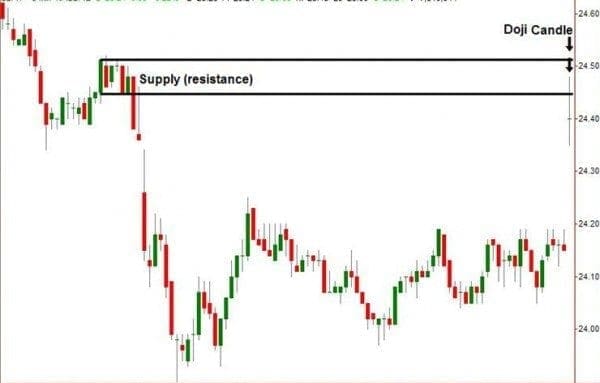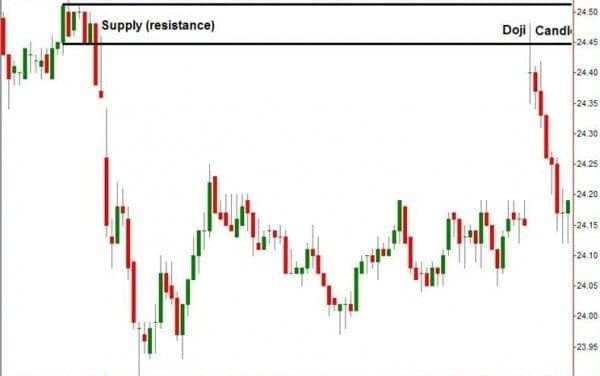The other day, I was speaking with a student of ours and he asked me a question I have been asked before. He said, ?Aren?t you afraid of giving too much of your strategy away as it may not work if too many people learn it?? As long as I have been trading and investing, I have been a bit worried about creating my own competition. Proper trading means having an edge over your competition. Without it, there is absolutely no way to profit, you will lose your account to someone who has a better edge than you. Specifically, you must have a rule based strategy that has you buying before your competition buys and selling before your competition sells, consistently.
During our 3 day Market Timing class, many people join our Online Trading Academy family and end up in our trading rooms and Mastermind Community. While I am happy when someone new joins our community, I am just as happy when they don?t. We can?t have everyone buying at demand and selling at supply like we do. We need plenty of people to take the other side of our trades. It?s great that people sell at demand and buy at supply. Just like Costco, people have to pay their retail prices or they will be out of business. Our business as traders is no different.
Sometimes during our trading events, we play the ?hard right edge? game. This is a fun game for attendees as they get to make a trade and try to win prizes, typically CD courses worth a couple thousand dollars or so. The game goes like this? We start with the opening candle of the day on a chart. As I scroll forward one candle at a time, attendees raise their hand when they are ready to either buy if they think the market will go up or sell short if they think the market will decline. They are only allowed to make one trade and we record it. For the past few events, we have used the same chart and an interesting pattern of behavior has emerged.
Here is the chart. I explain to the group of people that we are starting the game with a Doji candle (upper right), ?Would anyone like to enter the market, the game begins now.? If it is the graduate day where many of the people in the audience are already in our trading rooms (XLT), most people jump right into the game and sell as they should. After all, we have a gap up in price, into an obvious supply level to the left. On other days when the audience is all people who are new to Online Trading Academy, the trading decisions are often very different with this same chart. Every time the first trader decides that they want to buy, many hands go up and most of this group buys as well. What I find is that whatever the first trader does, buy or sell, others who decide to place a trade on this first candle do whatever that first trader did. It?s herd mentality live in action and its fascinating. Typically I am administering the game with another instructor who is entering everyone?s trades into our spread sheet and we always look at each other in disbelief. The fact that this market is opening right into a high odds supply level means less to this group of new market speculators than what the actions of others are. It?s an amazing mass flawed human behavior to witness. Most of the time, more than half the group enters a trade (buying) on this first candle that you see in the chart, even though I announce over and over that they don?t have to enter the market on the first candle and should be patient. This group of new traders who have never taken a course with us buys and buys and buys, only because they see others buying and buying and buying. Keep in mind that this has nothing to do with reading a chart. This has everything to do with people not having the ability to think logically and act on their own and instead, simply doing what others do because they are doing it.
As you can see, price declines and fills the gap below. Those who shorted the Doji candle at supply profit and those who bought lose. After I scroll the chart forward a few candles from the opening Doji, the group who bought that open become silent and stoned faced, as if they were just hit right between the eyes. Later, after the game is over and we are mingling with the audience, this group of people always tells me the same thing: ?I knew I should have sold short and not bought, it was a Doji into resistance (supply).? When I ask them why they bought, many have the same answer. They shrug their shoulders, look around and say, ?I don?t know.? Anyway, you get the point. It?s the same old truth of markets? Those who have proper trading education typically derive their trading income from those who don?t.
As for my issue of creating my own competition, I am less worried than ever and if I can help a few people achieve their goals by teaching them how money and markets really work, I am happy to lead an instructor team and do that. There are plenty of markets to trade and even if there weren?t, the powerful flawed human emotions of fear and greed will keep plenty of people buying at supply and selling at demand. In a perfect world, everyone would win and be profitable, there would be no losers, no frustrated traders. Unfortunately, this is not how the financial system works. Before you put your hard earned money at risk in the competitive world of market speculation, make sure you know what you?re doing. Learn how markets really work, practice on a demo account, start small, low risk, and so on.
Hope this was helpful, have a great day.
Sam Seiden


